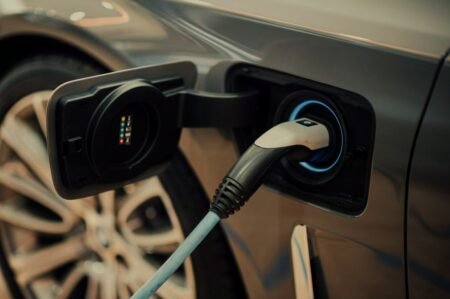The European Commission has published new guidelines on how EU Member States should use financial incentives to best increase demand for low CO2 emission vehicles.
Advertisement
Currently, rules on financial incentives differ across the EU, but a common framework could help facilitate the assembly of larger quantities of such vehicles, prompting lower prices for consumers.
Incentives can be useful instruments to foster the low CO2 producing vehicle industry, but they can also create trade distortions, says the Commission.
To address this issue, mandatory principles under the guidelines include non-discrimination with regard to the origin of the vehicle, the respect of EU state aid and procurement rules, and building on best practices in this domain. Member States must consider these principles in order not to violate the EU Treaty provisions, while other principles are recommended (see below).
In order to further enhance the uptake of cleaner cars, today during the Formula 1 test days in Barcelona Vice-President Tajani also unveiled the Volar-e, one the most powerful electric cars ever made.
Guidelines for all vehicles encompassing incentives granted in all forms
Guidelines will be applicable to cars, vans, buses, trucks as well as two- and three-wheelers and quadricycles. They will apply to financial incentives granted in all forms, such as straight grants, loans, tax deductions, other kinds of fiscal incentives or incentives in other monetary form.
Mandatory principles
Obligatory principles are based on the EU Treaty and concern provisions which must be considered in order not to violate its provisions. They encompass:
- Non-discrimination with regard to the origin of the vehicle concerned
- Compatibility with the EU type-approval legislation
- Non-violation of EU state-aid rules
- Taking of public procurement provisions into account (Directive 2009/33/EC)
- Respecting mutual recognition by notifying incentives (Directive 98/34/EC).
Recommended / best practice principles
Recommended principles serve as a set of best practices whose implementation will help obtain additional benefits at the European level.
- Technological neutrality – incentives should not be limited to certain category of vehicles (e.g. combustion engine, hybrid, electric etc.)
- Reference to a common performance-criteria – incentives should be available for all new vehicles reaching a target environmental performance
- Proportionality the incentive granted should be proportional to performance improvement
- Adequate incentive size – it should not exceed additional cost of technology
- Reference to EU CO2 limits – thresholds for the financial incentives should take into consideration the CO2 emission limits defined by relevant EU legislations.
Background
The development and an increased market penetration of clean and energy efficient vehicles have long been considered as effective ways to decrease transport dependence on hydrocarbons and reduce greenhouse gas emission. They also help the European automotive industry retain its competitive advantage in the global market.
In recent years a great number of policy measures have been adopted at EU, national and regional levels to facilitate the development and supply of low CO2 emitting vehicles. Considerable funding from European programmes was earmarked for research and innovation activities, enabling successful market introduction of several clean technologies. In parallel with public policy efforts aimed at greening road transport, implementation of demand measures has become essential in order to improve customer awareness and acceptance of cleaner vehicles, thereby fostering their market uptake.
In its 2010 Communication “A European strategy on clean and energy efficient vehicles” the European Commission presented a strategy for the development and market penetration of clean vehicles. Guidelines for financial schemes were one of its suggested tools to assist the deployment of the clean and fuel efficient vehicles in Europe. Strong support for this initiative was also expressed in the CARS 21 final report and adoption of this measure was confirmed in the CARS 2020 Communication.
Source: European Commission






